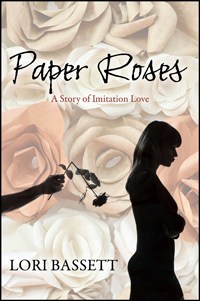If you are lucky enough to have lived in Paris as a young man, then wherever you go for the rest of your life it stays with you, for Paris is a moveable feast.
–Ernest Hemingway

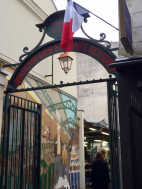
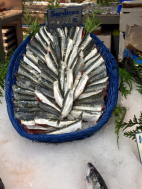
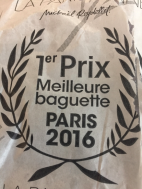
I am the most fortunate of persons: I have traveled to Paris on multiple trips. When I was studying French in college, I didn’t bother to learn the personal pronoun versions (tu, toi) of vous as I was quite sure that I would never know anyone that well in France. Now I find that my halting French at least gets me out of the starting gate. I can order sardines in a markets, like the charming Marche des Enfants Rouges–so named as it inhabits a former orphanage where the children where required to wear red.
In previous posts on Paris and France, I’ve covered several titles. A new one to me is the very popular The Little Paris Bookshop by Nina George, about a sad man who has mourned a broken love affair for 20 years. I’m grateful to my friend Andy for treating me to this novel. He calls himself a “literary apothecary,” and has an uncanny ability to pair books with readers to help them mend. When he finally reads his lover’s letter after two decades, Monsieur Perdu (appropriately lost in French) cuts loose his boat-based bookstore on the Seine and proceeds by waterway to the south of France to find out what happened to his love.
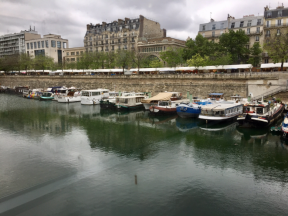

Along the way, he passes through some of my favorite countryside, the Luberon and coastal village, Cassis. It is a charming, four-hankie kind of read.
I also picked up Hemingway’s nostalgic A Moveable Feast (1961), in which he looks back on his time in Paris.
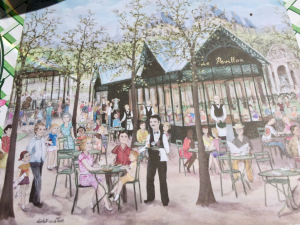 It was a lovely guidebook to his haunts: walks in the Luxembourg Gardens; drinks and writing at Les Deux Magots; his residences in the 5th arrondissement near Monde L’Arabe and the ancient Roman amphitheater, in Arenes de Lutece (39 rue Descartes and 74 rue Cardinal Lemoine). According to my dissertation advisor, Dr. Dorys C. Grover, the story about a hungry Hemingway hunting pigeons in Luxembourg Gardens and hiding them in the baby carriage is apocryphal. I trust her.
It was a lovely guidebook to his haunts: walks in the Luxembourg Gardens; drinks and writing at Les Deux Magots; his residences in the 5th arrondissement near Monde L’Arabe and the ancient Roman amphitheater, in Arenes de Lutece (39 rue Descartes and 74 rue Cardinal Lemoine). According to my dissertation advisor, Dr. Dorys C. Grover, the story about a hungry Hemingway hunting pigeons in Luxembourg Gardens and hiding them in the baby carriage is apocryphal. I trust her.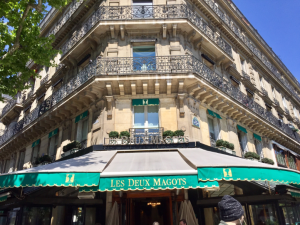
It was a return to a writer whom I’d admired greatly when in junior high through college—perhaps not so much now. The novel The Paris Wife from Hadley’s point of view was enlightening, and I reported on it during an earlier sojourn in the City of Lights. I also stopped by Shakespeare and Company, the groundbreaking bookstore founded by Sylvia Beach. She loaned books to Hemingway and other authors. He returned his; apparently Henry Miller did not.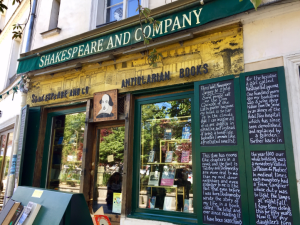
Yet another novel to consider set in this time period is Francine Prose’s Lovers at the Chameleon Club, Paris 1932 (2014), which was shortlisted for the National Book Award. Although overpopulated with characters, none of which is sympathetic to the end of the narrative, the book offers insight into alternative lifestyles in Paris pre-World War II and the disastrous circumstances of France’s cooperation with the Nazis. It also includes vignettes of real people such as Josephine Baker and characters that mirror actual people such as Henry Miller.
In addition, I read a couple of American expatriate memoirs—women who had fallen in love and remained in the country. French Toast by Harriet Welty Rochefort was just okay while the more recent Lunch in Paris: A Love Story with Recipes by Elizabeth Bard was more satisfying, if also a bit more narcissistic.
Although not fiction, David Leibovitz’s L’Appart: The Delights and Disasters of Making My Paris Home, is anticipated, due out this fall. I’m a big fan of his The Sweet Life, essays about moving to Paris.
Having visited Paris before, we now seek the out-of-the-way experience: the Musee des Arts Forains (a delightful 3-hour experience of historic carnival/carousels in the Bercy area); a walk on the Promenade Plantee (think NYC’s Highline Trail); the little known Musee Trente (artwork from the 1930s); biking on the newly-pedestrianized highway by the Seine using the bike-sharing Velib service; an after hours concert in Notre Dame.
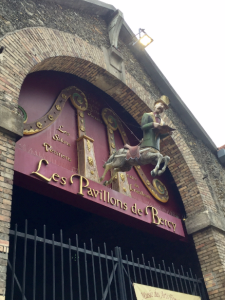
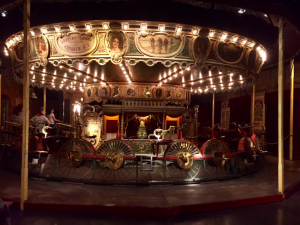
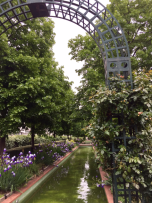
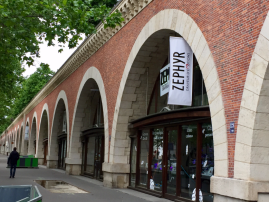

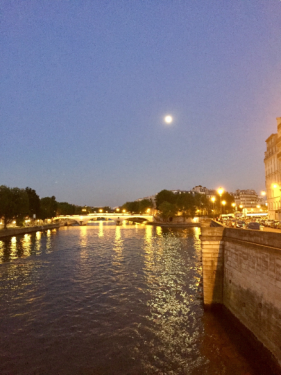
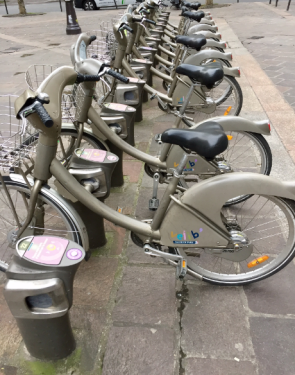
No matter how many times we visit the home of the Eiffel Tower, we never run out of activities or books to read.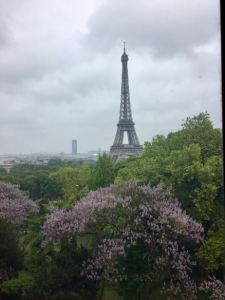
Save
Save
Save
Save
Save
Save
Save
Save
Advertisements Share this:- More




